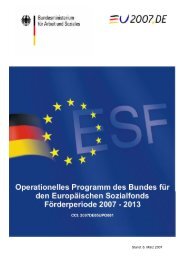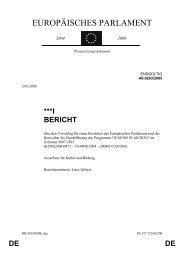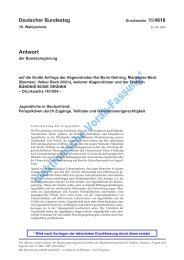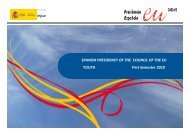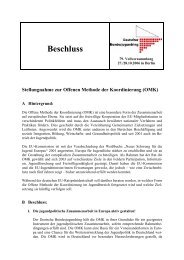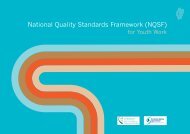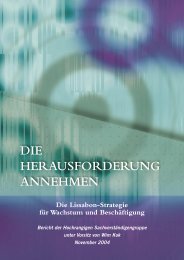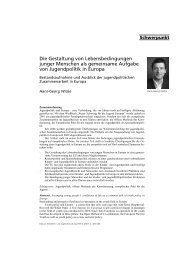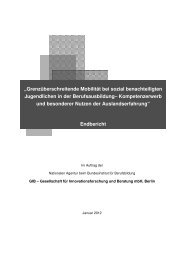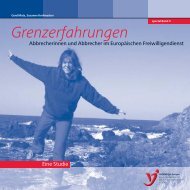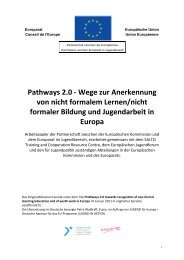Report - Salto
Report - Salto
Report - Salto
You also want an ePaper? Increase the reach of your titles
YUMPU automatically turns print PDFs into web optimized ePapers that Google loves.
30<br />
Bridges for Recognition | Milestones in European Recognition - Evolution<br />
The most relevant policy initiatives since Lisbon 2000 are the Lifelong Learning Strategy, a<br />
concrete work programme for the future objectives of education & training systems and the<br />
Bruges/Copenhagen process in VET (Vocational Education and Training). These three are now<br />
subsumed under the generic term “Education & Training 2010”. With regard to recognition of<br />
non-formal and informal learning all initiatives stressed the need for a greater transparency of<br />
skills and competences and a better “Valuing of all kinds of learning”.<br />
More specifically, in the identified key priorities of E&T “Bringing learning and learners closer<br />
together“ and “Making learning more attractive..” it was proposed that “youth organisations<br />
should make visible and publicize regularly the outcomes of non-formal and informal learning<br />
that results from their activities”.<br />
This strand was covered concretely by a working group “Validation of non-formal learning”<br />
within the Bruges process and a working group “Making learning attractive/strengthening<br />
links with working life and society” in the E&T 2010 framework.<br />
The main activities of these groups are:<br />
• Elaboration of Common principles for the identification and validation of non-formal<br />
learning<br />
• Development of a European Inventory for the validation of non-formal & informal learning<br />
• Development of a Single European Transparency Framework (EUROPASS)<br />
For the European Commission the most relevant policy initiative in the Youth Sector is undoubtedly<br />
the White Paper on Youth. It proposes to apply the open method of coordination in priority areas<br />
of the specific youth field and to take youth more into account in other policies such as Education<br />
and training. One of the key messages is to “expand & recognise areas of experimentation”<br />
and to recognise the complementarity of formal, non-formal & informal learning



